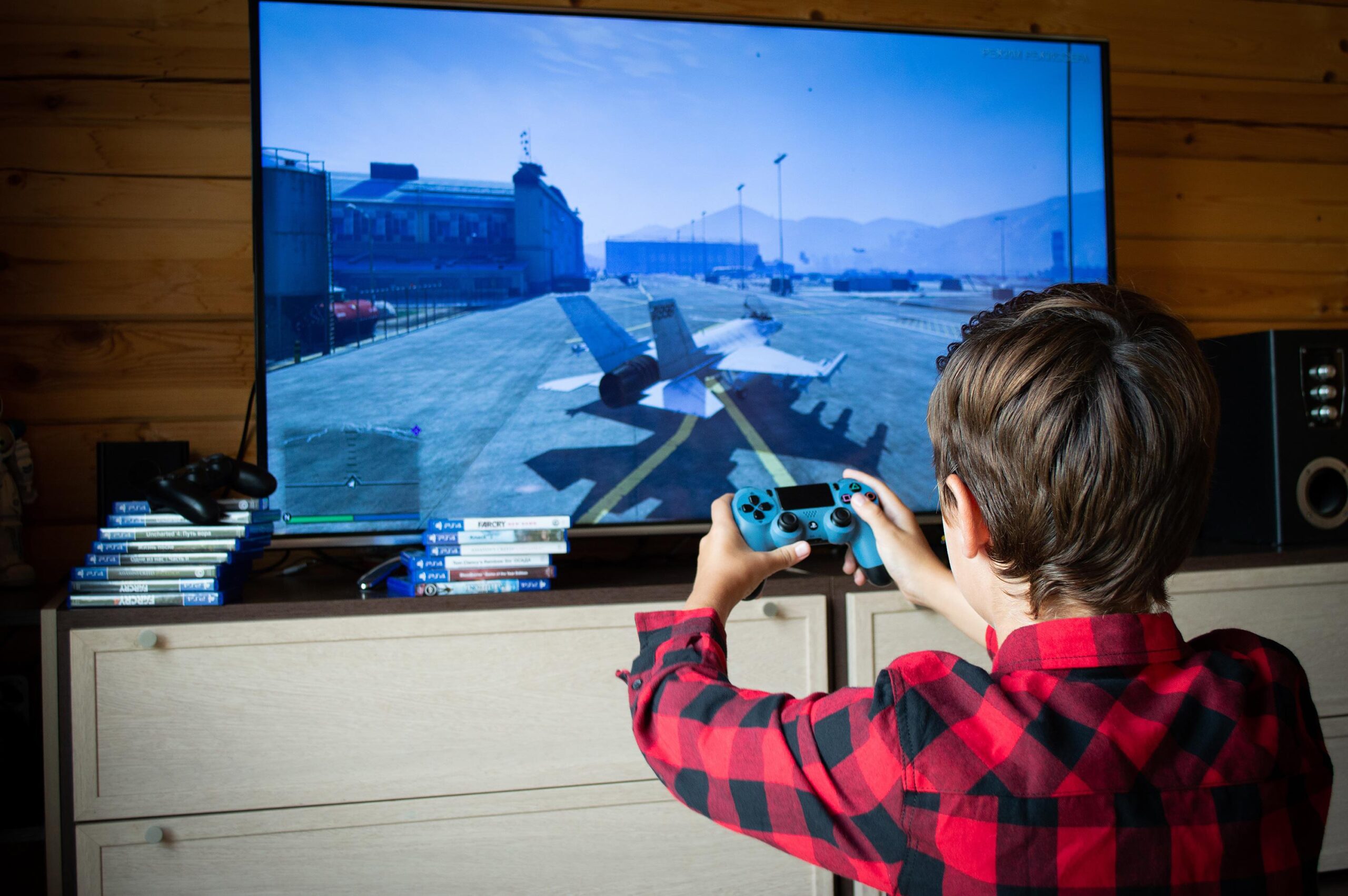Is Video Gaming a Sport? Exploring the Debate Between Esports and Traditional Sports
I’ve always been fascinated by the debate around whether video gaming qualifies as a sport. On one side, you’ve got traditionalists who argue sports require physical exertion and teamwork on a field or court. On the other, there’s a growing community claiming esports demand just as much skill, strategy, and dedication as any conventional sport.
The rise of competitive gaming has blurred the lines. Watching professional gamers train for hours, strategize with their teams, and compete in high-stakes tournaments feels no different than watching athletes prepare for a big game. But does that make gaming a sport, or is it something entirely different? It’s a question that’s sparked endless conversations, and I think it’s worth diving into.
Defining Sports And Esports
Sports and esports share overlapping characteristics, yet their distinctions spark ongoing debate. Understanding what defines a sport and the rise of esports helps clarify their connection.
What Makes A Sport?
Sports involve structured competition requiring physical skills, strategy, and adherence to rules. Traditional sports like basketball and soccer showcase physical exertion, agility, and teamwork within defined boundaries. The universal demand for practice, discipline, and performance evaluation further unites these activities under the category of sports.
Global bodies like the International Olympic Committee (IOC) emphasize physical effort and skill development as key markers. By this standard, sports typically combine athleticism and tactical decisions to achieve objectives.
The Rise Of Esports
Esports represent competitive video gaming where individuals or teams compete under standardized rules in games like League of Legends or Counter-Strike. These events attract millions of viewers, proving video gaming’s role as more than a recreational activity. Professional gaming leagues and large-scale tournaments offer significant prize money, transforming gaming into a professional pursuit.
Gamers spend rigorous hours developing reflexes, strategies, and mental endurance, comparable to traditional athletes’ preparations. Organizations like the ESL (Electronic Sports League) and investments from sponsors solidify esports as a global phenomenon.
Physical And Mental Skill Requirements
Video gaming, particularly in esports, involves significant physical and mental abilities. Professional gamers rely on sharp reflexes, strategic thinking, and sustained focus to compete at top levels.
Physical Demands In Gaming
Video gaming requires precise motor skills and exceptional hand-eye coordination. Players execute rapid movements using controllers, keyboards, or mice, translating split-second decisions into on-screen actions. For example, in first-person shooters like “Counter-Strike,” reaction times as low as 200 milliseconds can determine success. Additionally, prolonged sessions demand endurance, as gamers maintain posture, prevent fatigue, and manage muscle strains.
Cognitive Skills And Strategy In Esports
Strategic thinking, adaptability, and mental acuity are fundamental in esports. Gamers process dynamic scenarios and make quick decisions while anticipating opponents’ moves. For instance, in real-time strategy games like “StarCraft II,” players balance resource management, tactical planning, and multitasking under intense time constraints. Mental resilience also plays a role, as high-pressure tournaments require strong focus and stress management to maintain performance.

Competition And Team Dynamics
Competitive gaming mirrors traditional sports through structured tournaments and the emphasis on teamwork. Players often rely on cohesive strategies and effective communication to outperform opponents.
Organized Tournaments And Leagues
Esports thrives on organized competitions like the League of Legends World Championship, Dota 2’s The International, and Overwatch League. These events showcase standardized structures with regional qualifiers, playoffs, and finals, akin to traditional sports leagues. Prize pools in major tournaments can exceed $30 million, reflecting the industry’s scale. Professional teams adhere to schedules involving training, scrimmages, and review sessions to compete at peak levels. Platforms like ESL and FACEIT facilitate competitive ecosystems across multiple games, ensuring fairness and consistency.
Teamwork And Communication In Gaming
Effective teamwork is foundational in multiplayer esports titles like Counter-Strike: Global Offensive and Call of Duty. Players specialize in roles such as support or sniper, requiring synchronized efforts and strategic alignment. Communication ensures clarity in executing in-game objectives, especially in real-time scenarios. Tools like voice chat and detailed strategy discussions establish trust and coordination. Teams focus on synergy during practice by refining strategies and addressing weaknesses, mimicking the dynamic seen in traditional team sports.
Recognition And Legitimacy
Video gaming continues to gain recognition and legitimacy as a competitive discipline. Esports has evolved into a structured field that mirrors traditional sports in several key aspects.
Institutional Support For Esports
Institutions worldwide increasingly support the growth of esports. The International Olympic Committee (IOC) has acknowledged esports, organizing the Olympic Esports Series in 2023 to explore its integration into the sports realm. National governing bodies, like South Korea’s Korea e-Sports Association (KeSPA) and the United States’ Esports Federation, play crucial roles in regulating and promoting competitive gaming. Universities across multiple countries, including the US and UK, now offer scholarships for gamers, treating esports as a viable career path akin to traditional sports. Professional leagues, such as the Overwatch League and Call of Duty League, further solidify esports’ legitimacy by adopting governance structures similar to those seen in conventional sports organizations.
Cultural Perception Of Gaming As A Sport
Cultural perceptions of gaming as a sport have shifted significantly in the past decade. Broadcast platforms like Twitch and YouTube Gaming have brought esports to global audiences, attracting millions of viewers and elevating its status. Mainstream media outlets now cover major tournaments, highlighting the skill, strategy, and dedication of professional gamers. Public opinion shows increasing acceptance, with younger demographics more likely to categorize esports as a legitimate sport. Countries such as China and Japan have officially recognized competitive gaming as a professional sport, granting players the same status as traditional athletes. Despite lingering skepticism from traditionalist groups, the growing fan base, institutional backing, and media coverage continue to challenge outdated stereotypes about video gaming.

Counterarguments And Challenges
Critics raise valid concerns in questioning whether video gaming qualifies as a sport. These challenges often center around the lack of physical activity and persistent stereotypes about gamers.
Physical Activity Debate
Many argue that sports require significant physical exertion, a criterion video gaming seemingly lacks. Traditional competitions like football or tennis emphasize stamina, strength, and cardiovascular effort, distinguishing them from esports. Although gaming demands fine motor control and hand-eye coordination, detractors claim these are insufficient to meet the physical intensity associated with conventional sports. While esports athletes undergo training to maintain physical and mental health, the absence of overt bodily movement remains a divisive point in defining video gaming as a sport.
Stereotypes And Misconceptions About Gamers
Negative stereotypes about gamers further challenge esports’ status as a sport. Critics often portray gamers as inactive individuals lacking discipline or social skills, contrasting sharply with the image of traditional athletes. This perception undermines the legitimacy of esports, despite its highly structured environment and the dedication of professional gamers. Additionally, some dismiss competitive gaming as a hobby or form of entertainment rather than a professional discipline, ignoring the evolving infrastructure, professional teams, and global audience esports commands. Addressing these misconceptions remains critical for the broader acceptance of video gaming in mainstream sports culture.
Conclusion
The question of whether video gaming qualifies as a sport continues to spark lively debate, reflecting the evolving nature of competition in the modern age. While traditional sports emphasize physical exertion, the skill, strategy, and dedication required in esports are undeniable. The growing recognition from global organizations and the rise of professional gaming careers highlight its legitimacy as a competitive discipline.
Ultimately, the definition of a sport may depend on personal perspectives and cultural shifts. As esports gain momentum and challenge conventional norms, they’re carving out their own space in the world of competition. Whether you view video gaming as a sport or not, its impact on entertainment, technology, and global audiences is impossible to ignore.
Frequently Asked Questions
What qualifies as a sport?
A sport typically involves physical exertion, skill, strategy, and adherence to structured rules. It often requires teamwork and is recognized globally through competitive frameworks, such as tournaments and governing bodies.
What are esports?
Esports, or electronic sports, are competitive video gaming events where individuals or teams compete under standardized rules. Professional gamers train rigorously and participate in high-stakes competitions with prize pools.
How do esports compare to traditional sports?
Esports and traditional sports share similarities, including competition, teamwork, strategy, and skill. However, traditional sports often demand greater physical exertion, whereas esports emphasize mental resilience, reflexes, and hand-eye coordination.
Are professional gamers considered athletes?
Debates continue about whether gamers are “athletes,” but professionals demonstrate qualities like strategic thinking, focus, and dedication, similar to traditional athletes, while excelling in their specialized gaming skills.
Do esports require physical skills?
Yes, esports require physical skills such as precise motor control, hand-eye coordination, and rapid reflexes. However, these do not involve the same level of physical exertion seen in conventional sports.
Why are esports gaining recognition?
Esports are gaining recognition due to their structured competition, the rise of global tournaments, sponsorships, and coverage on platforms like Twitch, YouTube, and mainstream media. Organizations like the IOC also support esports initiatives.
What challenges do esports face to be classified as a sport?
Esports face criticism for lacking significant physical activity, which traditional sports often require. Negative stereotypes about gamers and cultural misconceptions also hinder their broader acceptance.
Are esports featured in the Olympics?
While not officially part of the Olympics, the International Olympic Committee has shown interest by organizing initiatives like the Olympic Esports Series, signaling growing support for competitive gaming.
Can esports be considered a career?
Yes, esports is a viable career. Professional players earn significant income through tournaments, sponsorships, and streaming platforms. Universities and national organizations also support esports with scholarships and programs.
How are esports tournaments structured?
Esports tournaments feature organized formats, standardized rules, and large-scale events like the League of Legends World Championship and Dota 2’s The International, often with substantial prize pools and global audiences.
